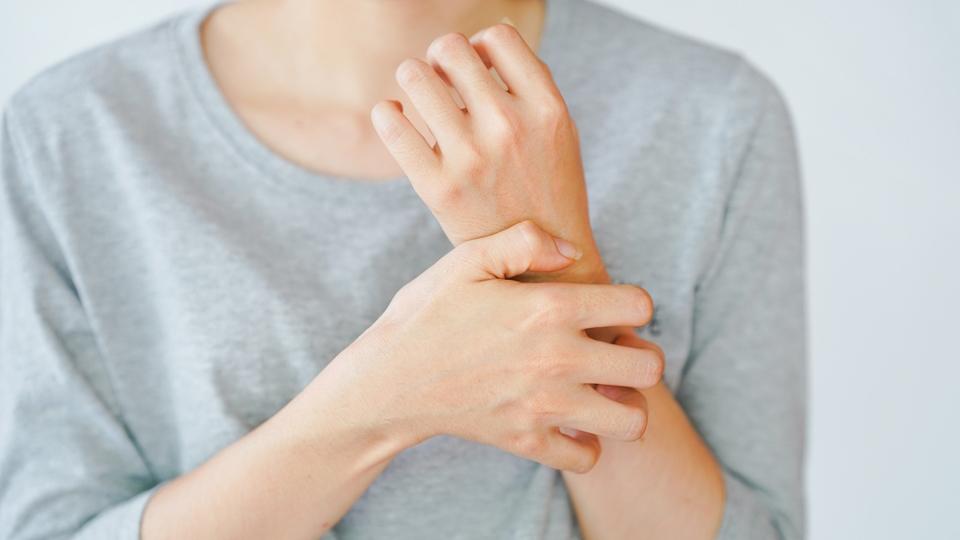Ipsen's Alagille drug backed by CHMP again, with new name

In unusual circumstances, Ipsen has been given the green light for its odevixibat drug for severe itching (pruritus) in patients with rare liver disease Alagille syndrome (ALGS) in the EU – for the second year running.
The once-daily, non-systemic ileal bile acid transport (IBAT) inhibitor was recommended for approval by the EMA's human medicines committee, the CHMP, in July 2023 for this indication under the Bylvay brand. It is already approved in the EU under that name for progressive familial intrahepatic cholestasis (PFIC), another rare disease affecting the liver.
That recommendation came however without the orphan status that can often be the key to unlocking reimbursement decisions in EU member states and also provides 10 years of marketing exclusivity after approval by the European Commission.
Ipsen was unable to convince the EMA that Bylvay qualified for orphan status – in other words, that it addresses a disease that is life-threatening or chronically debilitating and affects less than five in 10,000 patients – given the number of patients targeted under that brand.
Its solution was to refile the drug under a different brand name and now, a year later, odevixibat has a second positive opinion from the CHMP for ALGS under the new Kayfanda brand. Its orphan status remains up in the air, however, with a final decision still pending from the Commission.
ALGS is caused by a mutation in the JAG1 gene that leads to liver damage and jaundice. Itching is widely acknowledged to be one of the most debilitating symptoms of the disease, particularly in young children, and is one of the main drivers for patients to seek a liver transplant.
In the ASSERT trial – which Ipsen says is the world's first and only phase 3 trial completed in patients with ALGS – odevixibat achieved statistically significant and "clinically meaningful" improvements in scratching severity compared to placebo over six months.
The French drugmaker acquired rights to odevixibat when it bought Albireo last year in a $42-per-share deal worth around $950 million.
Previous estimates have suggested that the drug could make sales over $1 billion if it gets approval across PFIC, ALGS, and follow-up indication biliary atresia (BA). It was approved for the ALGS indication by the FDA, as Bylvay, in June 2023 and has orphan status in the US market.
Iqirvo for primary biliary cholangitis
In another uncommon event, Ipsen also picked up a second CHMP recommendation at its latest meeting, this time for Iqirvo (elafibranor), a drug for primary biliary cholangitis (PBC).
The panel gave its blessing to the use of the drug in combination with ursodeoxycholic acid (UDCA) in adults with an inadequate response to UDCA or as a monotherapy in patients unable to tolerate UDCA.
PBC is a chronic, autoimmune disease in which bile ducts in the liver are gradually destroyed, leading to cirrhosis, and affects around 100,000 people in the US, mainly women, with its prevalence on the rise. It causes debilitating fatigue and pruritus and, if left untreated, can progress to serious liver disease requiring a transplant.
Iqirvo, a dual PPAR alpha/delta agonist, has been shown to reduce levels of biomarkers for PBC in clinical trials, with a trend towards reduced itching. It was approved in the US in June and competes with Intercept Pharma's Ocaliva (obeticholic acid) in the PBC market.
Ipsen acquired rights to the drug from Genfit in 2021 in return for an upfront cash payment of €120 million and up to €360 million in potential milestones after a phase 2 study showed potential as a treatment for PBC. Analysts have suggested that the market for drugs to treat UDCA-refractory PBC could be worth $1.5 billion or more per year.
The drug was previously tested for metabolic dysfunction-associated steatohepatitis (MASH), but failed a phase 3 trial and was abandoned by Genfit for that indication.
"We are delighted to have received CHMP positive opinions for two potential new medicines in rare cholestatic liver diseases, on the same day," said Ipsen's head of R&D Christelle Huguet, who called it "a rare achievement, and one that demonstrates our commitment to addressing the unmet medical needs in these diseases."











